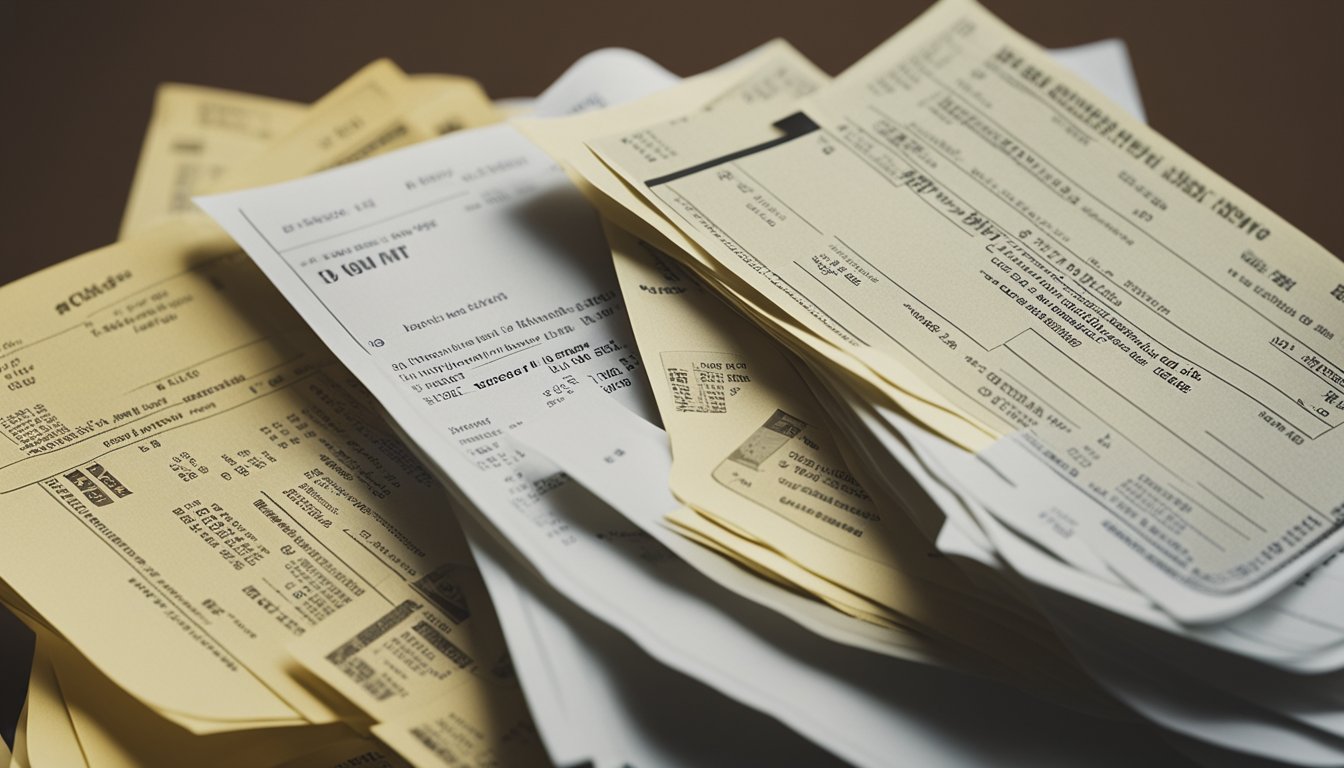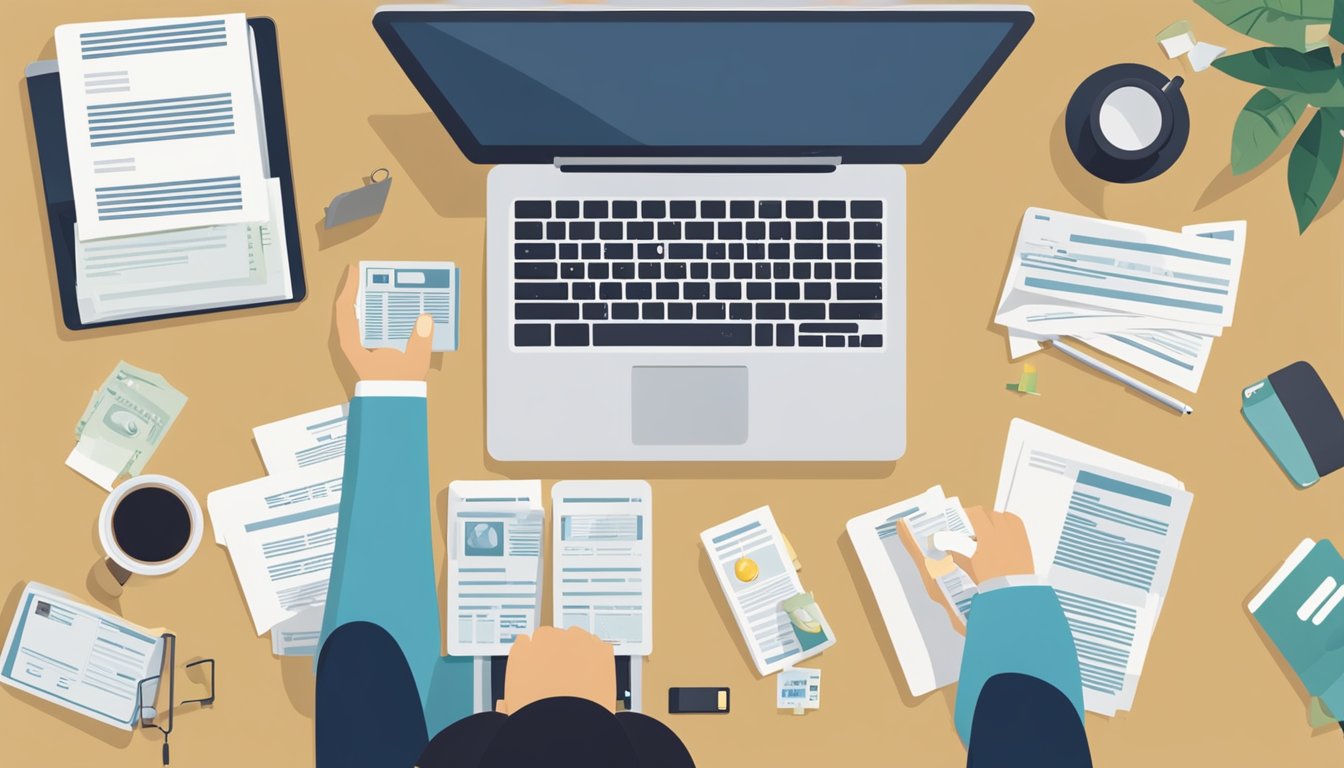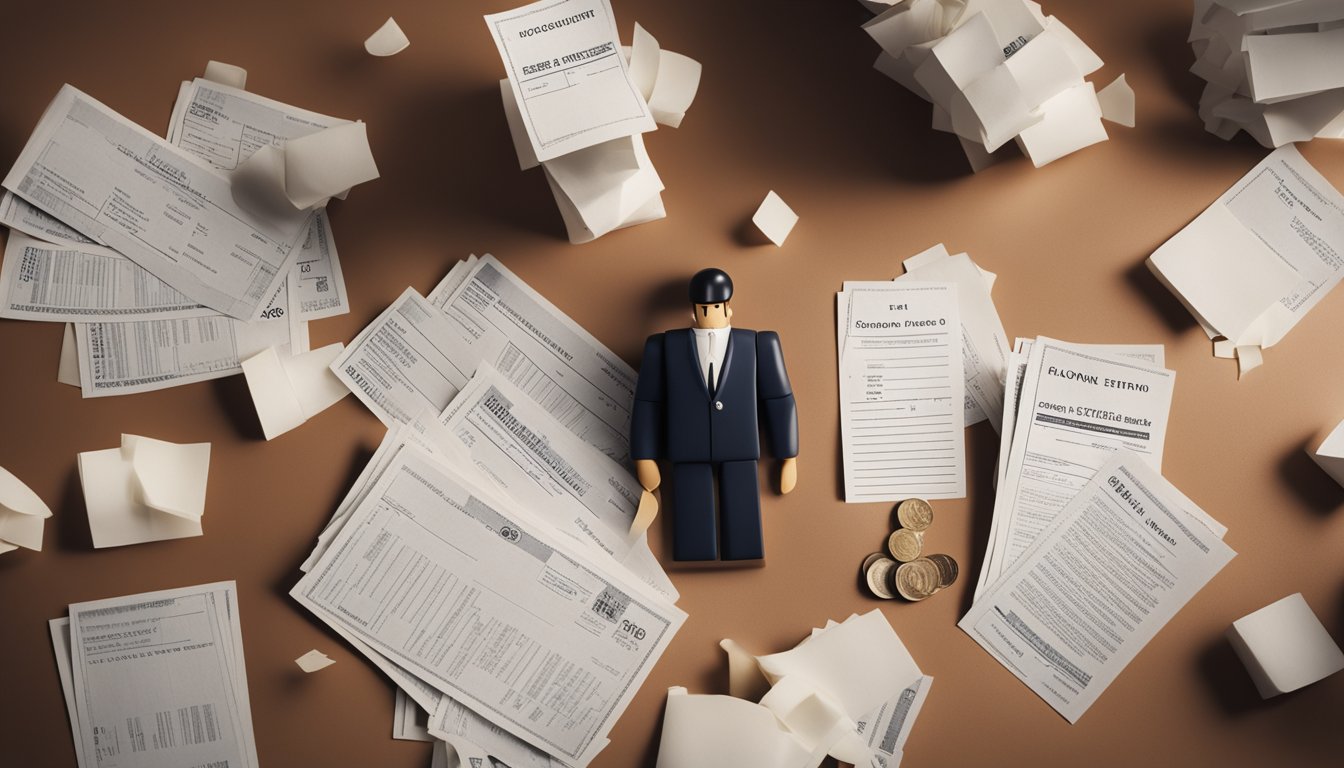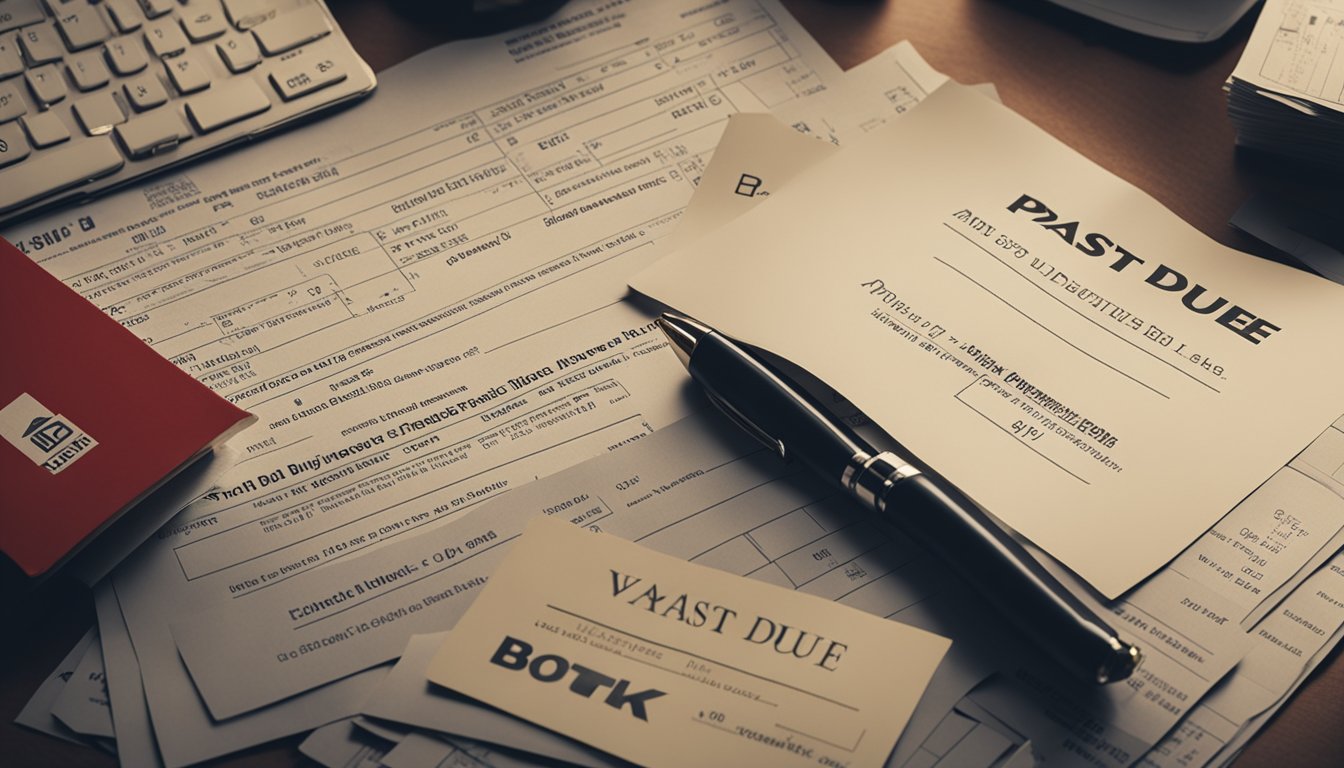If you are considering taking out a personal loan in Singapore, it is important to understand the consequences of non-payment. Failing to make your loan repayments can have serious consequences on your credit score, and may lead to legal action being taken against you. In this article, we will explore what happens if a personal loan is not paid in Singapore.

First, we will discuss what personal loans are and how they work in Singapore. We will then examine the consequences of non-payment, including how it can affect your credit score and what legal action may be taken against you. Finally, we will provide tips on how to manage debt in Singapore, as well as preventive measures you can take to avoid defaulting on your loans.
Key Takeaways
- Failing to make loan repayments can have serious consequences on your credit score and may result in legal action being taken against you.
- It is important to understand how personal loans work in Singapore and to manage your debt responsibly.
- Taking preventive measures and practicing financial discipline can help you avoid defaulting on your loans.
Understanding Personal Loans in Singapore

If you’re considering taking out a personal loan in Singapore, it’s essential to understand the different types available, the eligibility criteria, and the details about interest rates and repayment schedules.
Types of Personal Loans
In Singapore, personal loans generally come in two forms: secured and unsecured. Secured loans require collateral, such as property or investments, to secure the loan. Unsecured loans, on the other hand, do not require collateral but may have higher interest rates.
Eligibility Criteria
To be eligible for a personal loan in Singapore, you typically need to be a Singaporean citizen or permanent resident, have a stable income, and meet the lender’s credit score requirements. Different lenders may have varying criteria, so it’s essential to check the specific requirements of each lender.
Interest Rates and Repayment Schedules
Interest rates for personal loans in Singapore can vary based on factors such as your credit score and the type of loan. It’s important to carefully review the interest rates offered by different lenders and understand the repayment schedule before committing to a loan. Repayment schedules can be flexible, but it’s crucial to ensure that you can comfortably meet the repayment terms.
By understanding the different types of personal loans, eligibility criteria, and details about interest rates and repayment schedules, you can make informed decisions when considering a personal loan in Singapore.
The Consequences of Non-Payment

If you fail to repay your personal loan on time, you will face serious consequences. Here are some of the most common repercussions of defaulting on a personal loan in Singapore.
Impact on Credit Score
Not paying your loan on time can severely impact your credit score. Your credit report reflects the likelihood of you repaying your debts, and defaulting on a loan or making late repayments can lead to a lower credit score. This can make it difficult for you to obtain credit in the future, as lenders will view you as a risky borrower.
Legal Ramifications
If you continue to miss payments, your creditors may take legal action against you. Licensed moneylenders can sue you for the amount you owe, and if you do not respond to the writ of summons, the court may issue a judgment against you. This can lead to wage garnishment or seizure of your assets. If you are sued by a licensed moneylender, it is important to seek legal advice from a lawyer.
Debt Collection Practices
If you default on your loan, your creditors may engage debt collection agencies to recover the debt. Debt collectors may use aggressive tactics to get you to pay, such as calling you repeatedly or threatening legal action. However, debt collectors are required to follow certain guidelines under the law. For example, they are not allowed to harass you or use abusive language. If you are being harassed by a debt collector, you can report them to the police.
In conclusion, defaulting on a personal loan in Singapore can have serious consequences. It is important to negotiate with your creditors if you are having difficulty making payments, and to seek legal advice if necessary. Remember that your credit score is a valuable asset, and it is important to protect it by making your loan payments on time.
Managing Debt in Singapore

If you’re struggling to keep up with your personal loan repayments, it’s important to take action quickly to avoid falling further into debt. Here are some options to consider:
Debt Consolidation Options
If you have multiple loans or credit card debts, consolidating them into a single loan with a lower interest rate can help you to manage your debt more effectively. This can be done through a debt consolidation plan, which combines all your debts into one loan with a fixed repayment schedule.
Credit Counselling Services
If you need help managing your finances, credit counselling services can provide you with advice and support. These services can help you to create a budget, negotiate with creditors, and develop a debt repayment plan.
Negotiating with Creditors
If you’re struggling to make your loan repayments, it’s worth contacting your creditor to see if they can offer you any assistance. You may be able to negotiate a repayment plan that is more manageable for you, or you may be able to temporarily suspend your loan repayments until your financial situation improves.
Debt Repayment Plan
If you’re struggling to keep up with your loan repayments, you may be eligible for a debt repayment plan. This is a structured plan that helps you to repay your debts over a longer period of time, with smaller, more manageable payments.
Debt Management Programme
If you’re unable to repay your debts through a debt repayment plan, you may be eligible for a debt management programme. This is a government-run programme that helps you to manage your debts by providing you with financial counselling and support.
Remember, the most important thing is to take action as soon as possible. The longer you wait, the harder it will be to get your finances back on track. By taking steps to manage your debt, you can regain control of your finances and start to build a brighter financial future for yourself.
Legal Recourse and Bankruptcy

If you default on a personal loan, the lender may take legal action against you to recover the debt. This could include filing a lawsuit or obtaining a court judgment against you. If you are unable to pay the debt, the lender may also initiate bankruptcy proceedings against you.
Understanding Bankruptcy Proceedings
Bankruptcy is a legal process that allows individuals who are unable to repay their debts to have their debts discharged. In Singapore, bankruptcy proceedings are governed by the Bankruptcy Act, and the process is overseen by the Official Assignee.
If you are declared bankrupt, your assets will be seized and sold to repay your creditors. You will also be subject to certain restrictions, such as not being able to travel overseas without the permission of the Official Assignee. Additionally, you will not be able to apply for credit or take out any loans.
Alternatives to Bankruptcy
If you are unable to repay your debts, bankruptcy may not be your only option. You may be able to negotiate a debt repayment scheme with your creditors. This could involve paying off your debts in instalments over a period of time.
Alternatively, you could seek the assistance of the Ministry of Law’s Money Advice and Planning Service (MAPS). MAPS provides free financial counselling and debt management advice to individuals who are struggling with debt.
In conclusion, defaulting on a personal loan can have serious consequences. If you are unable to repay your debts, it is important to seek help as soon as possible. Whether you choose to negotiate a repayment scheme with your creditors or seek the assistance of MAPS, taking action early can help you avoid bankruptcy and get back on track financially.
Preventive Measures and Financial Discipline

When it comes to personal loans, preventive measures and financial discipline are key to ensure that you do not fall into a debt trap. Here are some tips to help you stay on top of your finances:
Building a Financial Safety Net
One of the best ways to prevent defaulting on a personal loan is to build a financial safety net. This means having savings set aside for emergencies, unexpected expenses, or any other financial circumstances that may arise. Aim to have at least three to six months’ worth of living expenses saved up in an emergency fund. This can help you avoid taking out loans to cover unexpected expenses, and also give you peace of mind knowing that you have a safety net in place.
Responsible Borrowing Practices
When you do need to apply for a personal loan, it’s important to practice responsible borrowing. This means only borrowing what you can afford to repay, and not exceeding your borrowing limit. Consider your financial circumstances and ensure that the loan you are applying for is affordable and fits within your budget. Avoid taking out multiple loans at once, as this can lead to a debt spiral that can be difficult to get out of.
To ensure that you are practicing responsible borrowing, it’s important to have financial discipline. This means creating a budget and sticking to it, tracking your expenses, and avoiding unnecessary spending. You can also consider working with a financial advisor or credit counsellor to help you manage your finances and stay on track.
By following these tips and practicing financial discipline, you can avoid defaulting on a personal loan and stay on top of your finances.
Conclusion

In Singapore, not paying your personal loan can lead to serious consequences. You may face legal action, and your credit score may be negatively affected. Financial institutions and moneylenders are required to follow the Moneylenders Act, which sets out the rules and regulations for lending money in Singapore.
To avoid these consequences, it is important to make sure that you can afford to repay your loan before you borrow the money. You should also make sure that you understand the terms and conditions of the loan, including the interest rate and any fees that you may have to pay.
If you do find yourself in a situation where you are unable to repay your loan, you should contact your lender as soon as possible. They may be able to work out a repayment plan with you or offer you a loan deferment.
Overall, taking out a personal loan can be a useful tool for managing your finances in Singapore. However, it is important to remember that it is a serious commitment, and you should only borrow what you can afford to repay. By following the rules and regulations set out by the Moneylenders Act, you can ensure that you are protected and avoid any unnecessary financial hardship.
Frequently Asked Questions

Can imprisonment be a consequence of defaulting on a personal loan?
No, you cannot be imprisoned for defaulting on a personal loan in Singapore. However, creditors may take legal action against you to recover the debt.
What legal actions might creditors take against someone who defaults on a loan?
Creditors may take legal action against you to recover the debt. This may include filing a lawsuit against you or hiring a debt collection agency to recover the debt. They may also seek a court order to garnish your wages or freeze your bank account.
Are there any repercussions for expatriates who leave unpaid credit card debts in Singapore?
Yes, there are repercussions for expatriates who leave unpaid credit card debts in Singapore. The debt will not disappear when you leave the country, and creditors may take legal action against you to recover the debt. This may affect your ability to return to Singapore or obtain a visa in the future.
What is the statute of limitations for debt collection in Singapore?
The statute of limitations for debt collection in Singapore is six years. This means that creditors have six years from the date of the last payment or acknowledgement of the debt to take legal action against you to recover the debt.
How does the inability to repay a bank loan affect one’s financial standing?
The inability to repay a bank loan can negatively affect your credit score and financial standing. It may make it difficult for you to obtain credit in the future, and you may be charged higher interest rates or fees.
What measures can a lender take if a borrower fails to utilise the borrowed funds?
If a borrower fails to utilise the borrowed funds, the lender may take legal action to recover the funds. They may also charge additional fees or interest on the loan.

